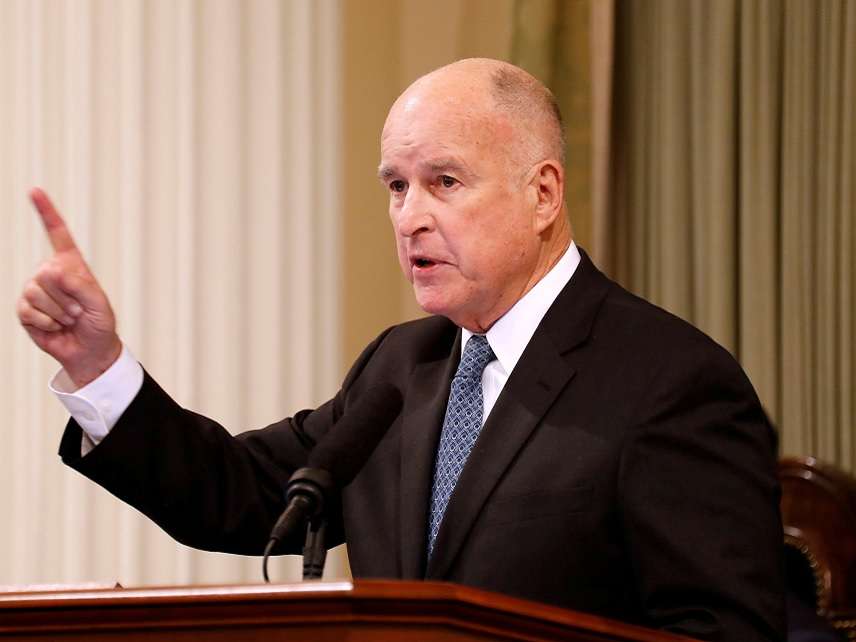California Legislature Passes Net Neutrality, but Will Gov. Jerry Brown Sign It?
States are now the main battleground in regulating internet and social-media giants.

The California state legislature has passed "Net Neutrality" legislation that would
prohibit Internet service providers from blocking or throttling lawful Internet traffic and from requiring fees from websites or online services to deliver or prioritize their traffic to consumers. The bill would also ban paid data cap exemptions (aka "zero-rating").
The bill passed in late August, over the objections of internet service providers (ISPs) and cellphone companies, according to Ars Technica.
It's not clear whether Gov. Jerry Brown will sign the bill into law but it's certain that there will be plenty of lawsuits if he does. First and foremost is the question of whether states have the right to pass such legislation or if the authority of the Federal Communications Commission (FCC) preempts them (it's pretty clear that it does).
Earlier this year, the FCC repealed the 2015 Open Internet Order, which had increased regulation on ISPs. In 2015, future FCC Commissioner Ajit Pai famously told Reason that Net Neutrality was a "solution that won't work to a problem that doesn't exist," an insight that has been borne out by subsequent events. Internet connections and speeds keep getting better regardless of the regulatory regime.
When it comes to state-level attempts to regulate internet companies, Net Neutrality is hardly the only battlefield. As The Wall Street Journal reports:
State attorneys general are emerging as a new regulatory threat to the U.S. companies that dominate the internet.
State officials are raising risks for companies such as Facebook Inc.,Twitter Inc. and Alphabet Inc.'s Google as the states begin piecing together a coordinated legal strategy for confronting the firms over alleged antitrust violations and data-privacy abuses, and over what some Republicans say is a suppression of conservative speech.
The Federal Trade Commission is also looking into various aspects of Amazon's business and President Donald Trump regularly attacks its owner, Jeff Bezos, by name. If last week's Senate Intelligence Committee hearings with Facebook's Sheryl Sandberg and Twitter's Jack Dorsey proved anything, it's that internet companies have now reached a stage of maturity where they are ready, willing, and able to be regulated in such a way that both government and business leaders find mutually beneficial. Sandberg and Dorsey rebuffed claims that they were stifling conservative voices on their platforms but also agreed with larger points about the need to restrict hate speech, bots, Russians, and other bad things. Of course, it's not just congressional Republicans who want to make sure that pro-Trump vloggers Diamond and Silk are not being shadow banned. Democrats have alleged that Facebook charged Hillary Clinton more for campaign ads than it did Donald Trump, among other things. Earlier this year, Facebook's Mark Zuckerberg announced that the question wasn't whether social media should be regulated but how.
And even Pai is musing about some sort of regulation of social media and internet companies. Before last week's Senate hearings, he wrote, "do steps need to be taken to ensure that consumers receive more information about how these companies operate, and if so, what should those steps be and who should take them?" While he is emphatic that "the government?—?in particular, the Federal Communications Commission, which I have the privilege of leading?—?shouldn't regulate these entities like a water company," it seems to me he is conceding that heavier regulation, at least in terms of mandated transparency of network practices, is practically a foregone conclusion.
Earlier this year, Reason TV explained why Mark Zuckerberg welcomes regulation:


Show Comments (30)